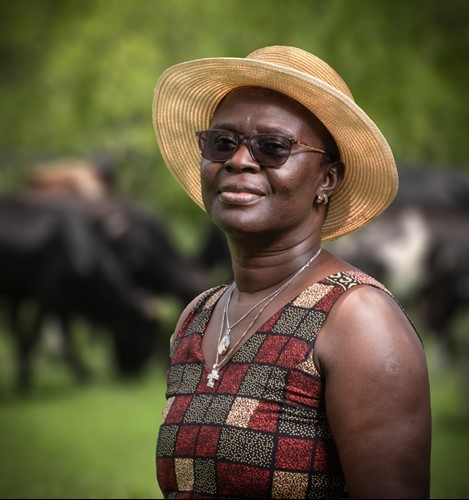Delegates also shared feedback on how they thought the policy environment could be improved in Zambia, based on what they had learnt on the tour. Ms Jedrine Mushili, a veterinary assistant with MFL, said she hoped the Government of Zambia might invest money in research that would help breed an animal genetically suited for the environmental conditions of Zambia.
Ms Mushili was impressed with New Zealand’s farmer-owned cooperative Livestock Improvement Corporation, or LIC, which has provided genetics expertise, information and technology (i.e. high-grade sperm for use in artificial insemination) to the dairy sector for more than 100 years.
Mr Mulusa agreed the Government had a role to play in Zambia.
“There is need for political will towards supporting the dairy industry. It’s clear that – if done properly – dairy farming could contribute significantly to the country’s GDP.”
The ZDTP is being implemented by Prime Consulting International Ltd in partnership with NIRAS International Development. It is funded by the New Zealand Aid Programme. For further information on the programme, please visit zambiadairy.com or contact Programme Country Manager Tania Thomson on tania@primeconsultants.net or +260 96 456 4206.

Study tour participant Mrs Caroline Lubinga started farming chickens, ducks and crops after taking early retirement from the banking sector after 23 years of service. She had no intention of venturing into dairy. That all changed in 2013 when Mrs Lubinga and other smallholder farmers in her area were encouraged by an extension officer from milk processing company Parmalat to form a dairy cooperative. “People were enthusiastic at first but failed to actualise it. Out of frustration, I decided to go it alone.”
Mrs Lubinga started off with three dairy cows and has since built up her herd to 60 animals. On average, she milks 15 animals per day which produce 200 litres between them. She is also chairperson of her local dairy cooperative.
Mrs Lubinga has prepared a huge workplan for developing her farm since returning home from the Study Tour to New Zealand, which she said had left her with a greater determination to succeed at her dairy business. Her plans include rewiring fences, building better animal shelters, separating paddocks for rotational grazing, planting new crops to reduce the cost of production through silage making, introducing milking machines, using Artificial Insemination from a good breed of dairy cow and creating a programme for the proper management of calves.
Mrs Lubinga said she would invite her fellow cooperative members to follow her journey so they could learn together. “I am open to the idea of using my farm for dairy management training, targeting dairy workers for on-the-job training and agriculture students that require work on attachment,” she said.
“Overall, the picture I drew of New Zealand was of a country [that is] self-sufficient through employing its resources for competitive advantage. Rome was not built in a day, but if we commit and work together, we too can make our mark on the world market.”

